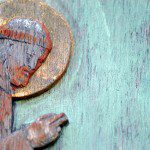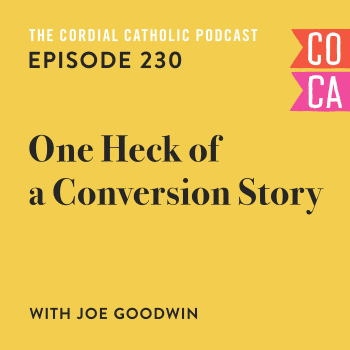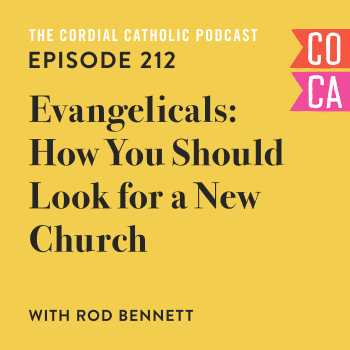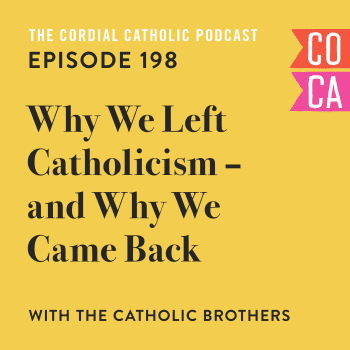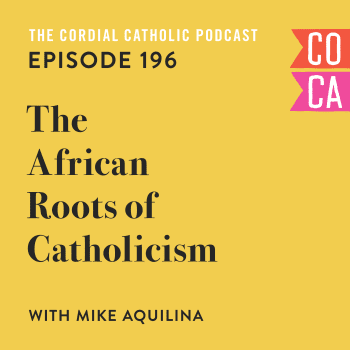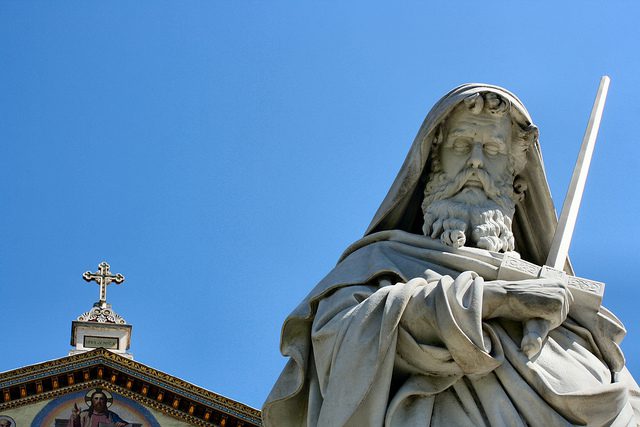
There were lots of reasons why I decided, as an otherwise happy Evangelical Protestant, to become a Roman Catholic.
Among these reasons were aesthetic and spiritual appeals—the beauty of the liturgy and the plethora of centuries old spiritual practices—and these were, indeed, powerful motivators.
But alongside the sometimes esoteric motivations were some fundamentally, concretely intellectual reasons to join the ranks of the ancient Catholic Church.
Chief among the intellectual appeals stand the towering figures of the Early Church Fathers.
It was the strong appeal and clear theology of these, some of the earliest and most foundational Christians, that contributed strongly to my intellectual conversion to Catholicism.
To read these, the Founding Fathers of Christianity, and to do anything otherwise, I’ll argue, would’ve been utterly foolish.
The Clarity of the Church Fathers
I’ve written before, in a tongue-and-cheek article, that a surefire way to avoid becoming a Catholic is to avoid reading from the Church Fathers altogether.
The reason is simple.
A genuine, face value reading of many of the earliest Church Fathers makes something very obvious: That the doctrine they held to—these the earliest Christians—was decidedly Catholic.
Take the Eucharist and Baptism, for example.
The Church Fathers on Baptism
In the Catholic Church, along with the Anglicans and the Orthodox, the Eucharist along with Baptism is considered sacramental. What’s called a sacrament.
That is, these practices hold the most special graces possible within the Church. In these acts, God does something specifically important.
In Catholicism, fundamentally, baptism saves.
It is the first initiation into the Church and a cleansing of all sin.
This is, of course, runs contrary to my Evangelical upbringing.
As an Evangelical baptism was merely an outward sign that I’d accepted Christ. I was baptized years after “becoming” a Christian. My wife sometimes jokes that she was baptized—in a Baptist church—so she could get a job at the Church bookstore. Regardless, for the both of us baptism was an outward sign—that’s what we would’ve called it, “an outward sign”—symbolizing our acceptance of the mission and message of Christ.
While baptism is seen, nearly universally amongst Evangelicals, as a mere “outward sign” this is in complete and absolute contrast to the teaching of the Early Church Fathers.
Irenaeus, for example, writing in the 2nd century, is unequivocal,
For as we are lepers in sin, we are made clean, by means of the sacred water and the invocation of the Lord, from our old transgressions, being spiritually regenerated as newborn babes, even as the Lord has declared: ‘Except a man be born again through water and the Spirit, he shall not enter into the kingdom of heaven’.
Along with a myriad of other Early Church Fathers, Irenaeus speaks about the important saving power of baptism—and its necessity.
Irenaeus, to put him in his proper context, was a disciple of Polycarp who, himself, was a disciple of John. And, alongside the witness of the other Early Church Fathers, Irenaeus’s teaching on the necessity of baptism is in stark contrast to what was taught in the Evangelical communities I “grew up” in.
The Church Fathers on the Eucharist
Likewise, the Eucharist.
I’ve written several times before about the convincing and unambiguous witness of the Early Church Fathers about the Eucharist. In the mind of all of these Church Fathers, themselves disciples of the very first disciples of Christ, the Eucharist was the actual blood and body of Christ.
This doctrine, a true mystery and miracle, is referred to as transubstantiation in the Catholic Church and is held, in similar ways, by the Orthodox, Anglican, and Lutheran communities.
In these communities, the belief is that the elements of wine and bread, during Communion, actually become Jesus’ flesh and blood through a miraculous transformation.
Something akin to the feeding of the five thousand (which interestingly enough precedes Jesus’ famous Eucharistic Discourse in John 6).
This idea, in contrast, is fundamentally opposed by the whole of Evangelical Christendom.
Some denominations, like the Pentecostal church I was baptized in as a teen, would go so far as to hold Catholics as idolaters for their worship of the Communion elements.
But back up that truck.
Belief in the real presence was a cornerstone of Christian worship in the time of the Early Church; it was so widely held and well known that early Christians were accused of being cannibals.
Justin Martyr, one of the earliest Christian apologists, wrote around 150AD,
This food we call the Eucharist, of which no one is allowed to partake except one who believes that the things we teach are true, and has received the washing for forgiveness of sins and for rebirth, and who lives as Christ handed down to us. For we do not receive these things as common bread or common drink; but as Jesus Christ our Savior being incarnate by God’s Word took flesh and blood for our salvation, so also we have been taught that the food consecrated by the Word of prayer which comes from him, from which our flesh and blood are nourished by transformation, is the flesh and blood of that incarnate Jesus.
Like Irenaeus on Baptism, Justin Martyr, along with many other Early Church Fathers, writes unequivocally on the real presence of Jesus in the elements of Communion.
So You Think You’re Smarter than the Church Fathers?
I think, ultimately, there are two elements at play here.
First, for those that read the Church Fathers—those outside of the Catholic, Orthodox, or Anglican faiths—it becomes a difficult balancing act.
If we give the Church Fathers the full weight they deserve, as apostles of the apostles and the early founders of a Church, then we need to do some serious thinking.
If baptism saved, if the bread and wine were believed to actually be Jesus in the time of the Early Church why, and when, did we cease to maintain that belief?
The question to me, as an evangelical, was too great of an intellectual stumbling block to simply ignore.
Do we really think we’re smarter than the Early Church Fathers?
Second, however, is that fact that so few of us read the Early Church Fathers to begin with—and that’s really the crux of the thing, isn’t it?
Would Protestantism proliferate 30,000 different denominations if we returned to the sources and, as a Christian people, read what the earliest Christians had to say?
The challenge of our times is one of rising above the status quo of whatever Christian tradition we happen to have been raised in—both spiritually and intellectually.
In the end, I suspect there are very few of us proposing to be smarter than the giants of the Early Christian Church. That would be a fool’s game.
Instead, and sadly, I suspect the vast majority who cling to beliefs adopted in much more recent times don’t even know it—and haven’t read the ancient Christian sources or heard the incredible things they have to say.
No, I don’t think many of us think we’re smarter than the Church Fathers.
I think most of us, sadly, haven’t bothered to read them, and find out.
And what they have to say is remarkable.
Stay in touch! Like The Cordial Catholic on Facebook:

